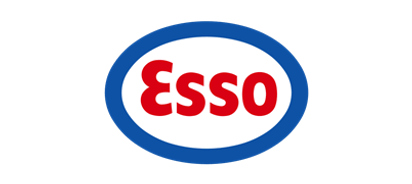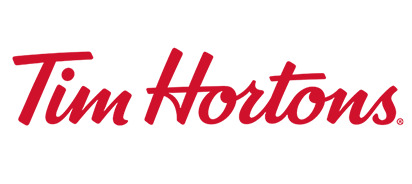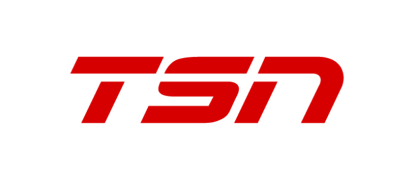Players from the Swiss U20 national team on the bus to the chartered plane to Edmonton.
photo: Adam Steiss
With a tough but necessary COVID-19 testing process now completed, the participating teams of the 2021 IIHF World Junior Championship left this Sunday to travel to Edmonton.
Getting to this point has been a months-long journey that has involved countless discussions, between the teams, the IIHF, the Local Organizing Committee, the Canadian Federal Government, the provincial government of Alberta, as well as health and safety authorities in Canada and worldwide.
The teams travel to Canada in charter flights organized from predetermined travel hubs in Europe. Prior to departure, all players and team staff had to undergo a minimum of three COVID-19 tests, as well as a quarantine period that will continue upon the player’s arrival in Canada.
The process was not without a few disappointing moments, as a number of players and coaches have had to remain home due to positive tests.
“We feel for those players and coaches that won’t be able to be with their teams,” said IIHF President René Fasel, who is himself currently in isolation due to a positive COVID-19 test but was not scheduled to travel to the tournament. “But it would have been impossible to host this tournament otherwise, we had to ID and remove the at-risk individuals and will continue to monitor all players and staff as teams move into the hotels, we are not out of the woods yet.”
“The rules we made have been clearly communicated to the teams from the beginning, and are based on the latest scientific information provided to the IIHF through the Medical Committee, in order to protect to hundreds of participants and the championship.”
Getting to this point has been a months-long journey that has involved countless discussions, between the teams, the IIHF, the Local Organizing Committee, the Canadian Federal Government, the provincial government of Alberta, as well as health and safety authorities in Canada and worldwide.
The teams travel to Canada in charter flights organized from predetermined travel hubs in Europe. Prior to departure, all players and team staff had to undergo a minimum of three COVID-19 tests, as well as a quarantine period that will continue upon the player’s arrival in Canada.
The process was not without a few disappointing moments, as a number of players and coaches have had to remain home due to positive tests.
“We feel for those players and coaches that won’t be able to be with their teams,” said IIHF President René Fasel, who is himself currently in isolation due to a positive COVID-19 test but was not scheduled to travel to the tournament. “But it would have been impossible to host this tournament otherwise, we had to ID and remove the at-risk individuals and will continue to monitor all players and staff as teams move into the hotels, we are not out of the woods yet.”
“The rules we made have been clearly communicated to the teams from the beginning, and are based on the latest scientific information provided to the IIHF through the Medical Committee, in order to protect to hundreds of participants and the championship.”
Temperature check for the German players prior to boarding the plane to Edmonton. All players leaving today have been tested negative for COVID-19 at least three times.
photo: Adam Steiss
The next step upon arrival in Edmonton for all teams and tournament officials is a mandatory 4-day lockdown at the hotel. All players will be sequestered in separate rooms and administered daily COVID tests. Only on 18th December will there be a green light for teams to hit the ice and start practising and preparing for the Juniors.
The IIHF together with Hockey Canada, the Local Organizing Committee, and the Alberta government are in constant communication to ensure that health and safety remains the highest priority. From the time players enter the flights, bubble protocols will be put in place and will remain until the conclusion of the tournament.
“This is a sensitive time, a lot of people are coming into the bubble,” said Fasel. “They will be tested again prior to getting onto the flight, and then every day until they leave the bubble.”
Fasel acknowledged that outside of the bubble the situation in Alberta is difficult, but expresses complete confidence in the preparations and in the efforts by the teams to get to this point.
“I cannot commend the teams enough for what they have been doing,” said Fasel. “They have followed all the directives given by the IIHF and OC to the letter. This has meant of course that there would positive cases, which shows that these tests needed to be done in order for us to consider having this competition safely.”
Some of the teams most affected include Sweden, which has had to leave behind not just players but also a significant number of staff members, including head coach Tomas Monten.
“I find it very impressive, the manner by which Sweden has managed its way through their positive COVID-19 tests within the team,” said Tom Renney, CEO of Hockey Canada. “By putting physical, mental, and emotional health first, they will emerge healthy and strong and be as competitive a hockey power as ever in the World Junior Championship. We look forward to their arrival in Edmonton.”
“To all the teams: It is only through your work in following the protocols that we can give these players the chance to play in the tournament of their lives, and give their loved ones back home and hockey fans around the world a chance to experience the best of the international game at a time when they need it most.”
The IIHF together with Hockey Canada, the Local Organizing Committee, and the Alberta government are in constant communication to ensure that health and safety remains the highest priority. From the time players enter the flights, bubble protocols will be put in place and will remain until the conclusion of the tournament.
“This is a sensitive time, a lot of people are coming into the bubble,” said Fasel. “They will be tested again prior to getting onto the flight, and then every day until they leave the bubble.”
Fasel acknowledged that outside of the bubble the situation in Alberta is difficult, but expresses complete confidence in the preparations and in the efforts by the teams to get to this point.
“I cannot commend the teams enough for what they have been doing,” said Fasel. “They have followed all the directives given by the IIHF and OC to the letter. This has meant of course that there would positive cases, which shows that these tests needed to be done in order for us to consider having this competition safely.”
Some of the teams most affected include Sweden, which has had to leave behind not just players but also a significant number of staff members, including head coach Tomas Monten.
“I find it very impressive, the manner by which Sweden has managed its way through their positive COVID-19 tests within the team,” said Tom Renney, CEO of Hockey Canada. “By putting physical, mental, and emotional health first, they will emerge healthy and strong and be as competitive a hockey power as ever in the World Junior Championship. We look forward to their arrival in Edmonton.”
“To all the teams: It is only through your work in following the protocols that we can give these players the chance to play in the tournament of their lives, and give their loved ones back home and hockey fans around the world a chance to experience the best of the international game at a time when they need it most.”




